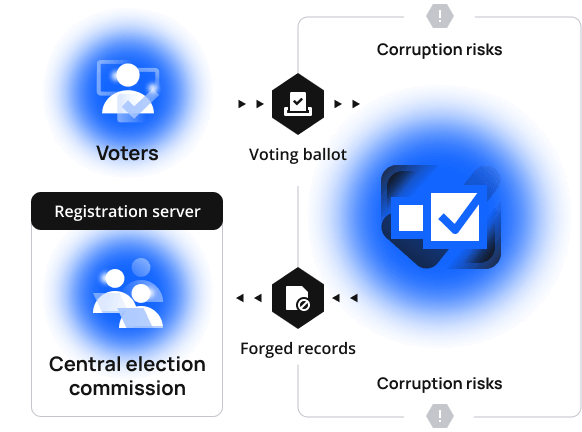Blockchain applications in voting systems
-
Voting records
-
Voting process
-
Voting network
Use case 1. Reliable voting records

Currently
Manipulation and compromised reporting records ruin all democracy behind voting, bringing inaccurate voting results and even fabricated winner announcements as probable outcomes.
With blockchain
Check the identity of each vote autonomously with smart contracts; those contain immutable rules for voting and reject votes that don’t comply.
Use case 2. Transparent voting

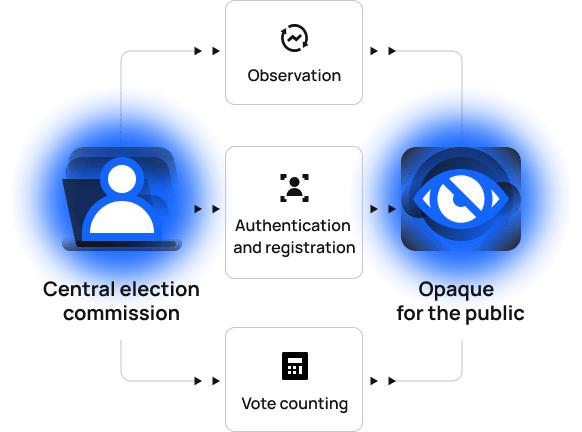
Currently
The presence of a single authority might bring down the whole voting system; corruption possibilities are always a part of the issue, with one party governing on its own.
With blockchain
Arrange distributed and thus transparent elections with blockchain-based e-voting platforms where every participant can verify, count, and authenticate votes visible to the whole network.
Use case 3. Stable voting network

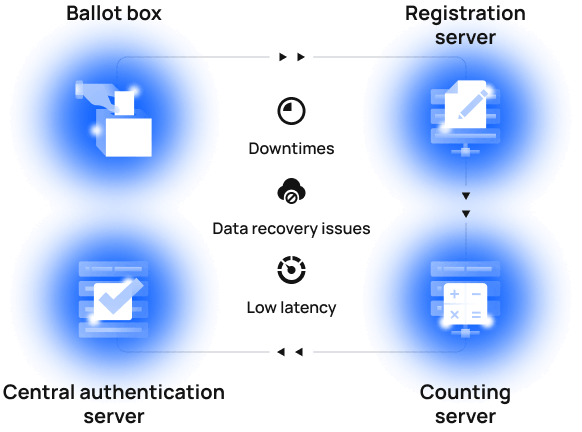
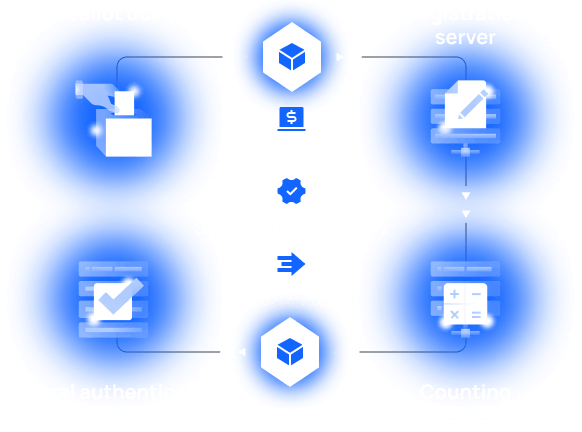
Currently
Current e-voting systems are prone to downtimes, low latency, and inability to detect attacks, errors, and faults as well as recover information to the moment before failure.
With blockchain
Improve your e-voting systems with scalable, self-enforcing blockchain technology that maintains stable network performance under high loads and detects hack attempts instantly.







